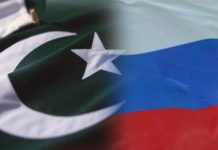By Muhammad Luqman
Pakistan’s National Assembly, the lower house of Parliament has passed a constitutional amendment , paving way for merger of the tribal areas with north-western province of Khyber Pakhtun Khawa through widespread political, administrative and human rights reforms.
With the adoption of the law, the century old colonial era regulations have also been abolished.
The amendment will now be tabled in Senate, the upper house of Parliament and the KP provincial assembly, where it is expected to be passed smoothly before becoming law.
“We needed a national consensus on this issue, and it was achieved,” told Prime Minister Shahid Khaqan Abbasi after the bill was passed by the National Assembly.
“This is the start of a process, not the end of one. We need to gain the trust of the people of FATA, and that trust will not come just through words … but the biggest need right now is the lack of development in FATA needs to be addressed,” he said.
Since Pakistan gained independence from the British in 1947, the country has continued to govern the seven tribal districts along its border with Afghanistan, also called tribal agencies, by direct rule from the capital Islamabad, with each district ruled by a “Political Agent” (PA) appointed by the president.
The political agents hold absolute power in their tribal districts, where they are responsible for all government services, as well as serving judicial functions.
After the adoption of the amendment by both houses of the parliament, all seven the districts would be merged into northwestern KP province, with political agents replaced by an accompanying extension of the provincial and federal government’s power to deliver government services, including healthcare, education and policing.
All Pakistani laws, including criminal and penal codes, have been extended to the tribal districts, which earlier were governed under colonial-era criminal regulations.
FATA’s five million citizens will also have access to fundamental rights under the Constitution, and will be able to vote for representatives in the provincial and national assemblies.
The amendment effectively abolishes the Frontier Crimes Regulation (FCR), a draconian British law that left citizens of the tribal areas with no recourse to courts and liable to be subjected to collective punishment for the crimes of tribe members, according to media.















